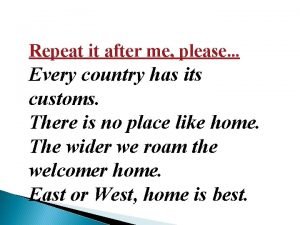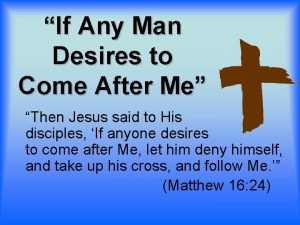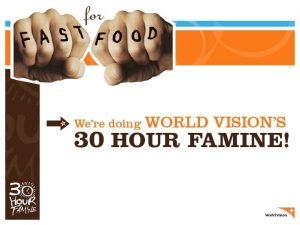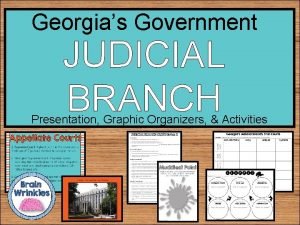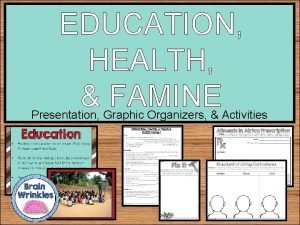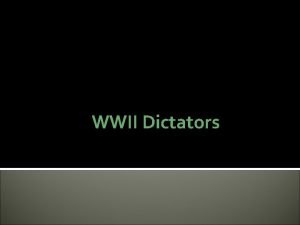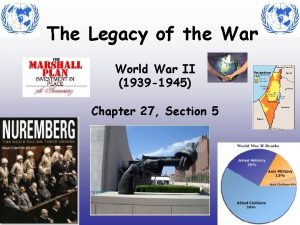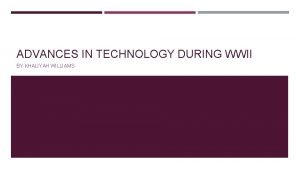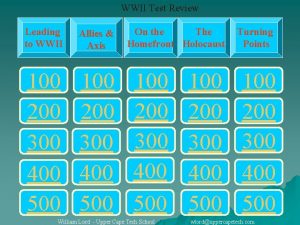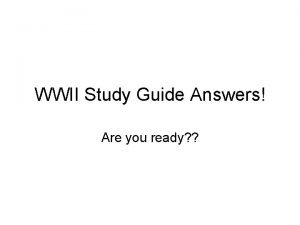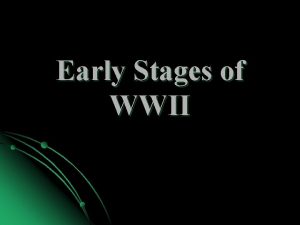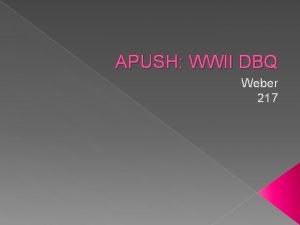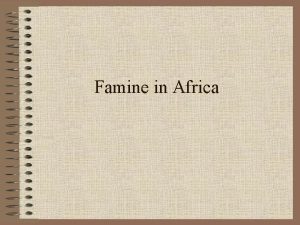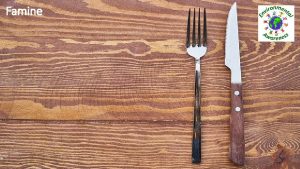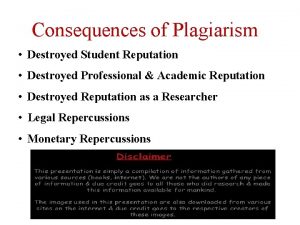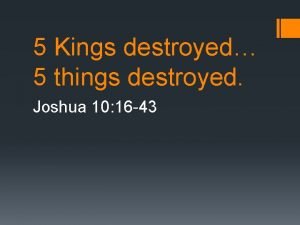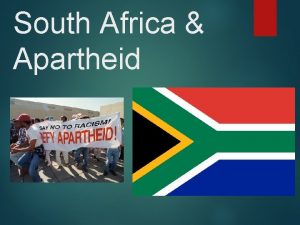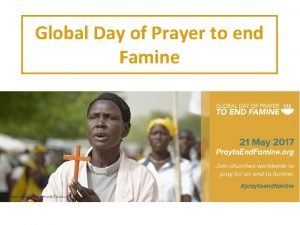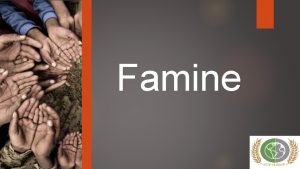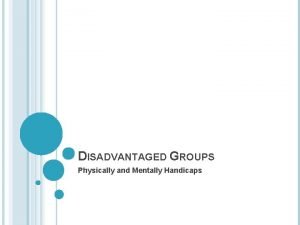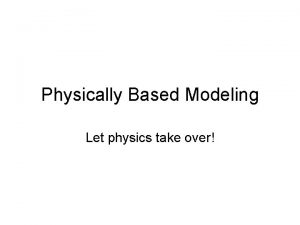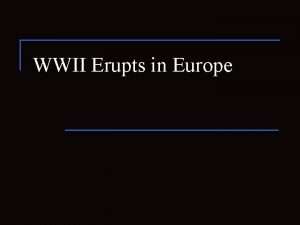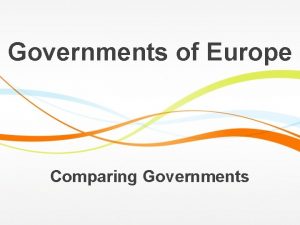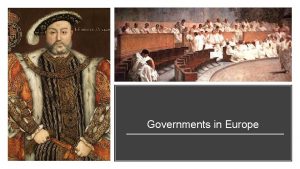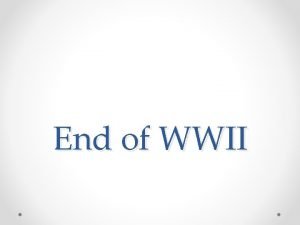Physically destroyed Europe after WWII Widespread famine Governments















- Slides: 15

§ Physically destroyed Europe after WWII § Widespread famine § Governments physically, financially, and emotionally unable to reconstruct § United Nations created to replace the League of Nations

The Yalta Conference § Held in February 1945, when the war not yet officially over § Leaders present: FDR (USA), Churchill (GB), and Stalin (Soviet Union) § Decisions: § Germany and the capital city of Berlin were divided into 4 zones, each occupied by an allied country § Stalin promised free elections in the Eastern European countries the USSR occupied FDR Churchill Stalin § USSR joined war against Japan § USSR would join United Nations

The Potsdam Conference § Held in July 1945 when war had ended § Leaders present: Truman (USA), Atlee (GB), Stalin (Soviet Union) § The only leader who had now been at both conferences was Stalin and he felt he had the upper hand because of it § Stalin refused to allow free elections in Eastern Europe, which he had promised at Yalta Truman Atlee Stalin § Countries agreed to take reparations from their zone within Germany § Truman convinced the US and the Soviet Union were now at odds

The Iron Curtain § Term for division of Europe § Democratic Western Europe vs. Communist Eastern Europe

THE COLD WAR 1945 – 1991 Conflict between the U. S. and the Soviet Union in which neither nation directly confronted each other on the battlefield

Origins of the Cold War United States • Democratic • Free Market (Capitalist) economy • Believed countries should choose their own leaders After WWII, the United States and Soviet Union represented very different fundamental values. Soviet Union • Totalitarian • Communist • Controlled Eastern Europe to protect itself

U. S. Foreign Policy: Containment § Keep communism from spreading § Key foreign policy of US until end of USSR in 1991 § Applied to Europe first (Greece & Turkey), then Middle East, Asia, Latin America, and Africa later

Truman Doctrine http: //www. history. com/topics/cold-warhistory/videos/the-truman-doctrine § US believed communism would infiltrate areas of Europe that were weakened by war § US prepared to use any means necessary to contain communism

Two Sides are Formed NATO (North Atlantic Treaty Organization) US and Western European countries Warsaw Pact Soviet Union & Eastern European countries

The Marshall Plan § European Recovery Program § Created to combat the negative economic impacts of WWII § Named after George C. Marshall (Truman’s Secretary of State) § 2 major goals: 1. Prevent spread of communism to Western Europe 2. Stabilize nations to allow for democracy and free-market economy http: //www. history. com/topics/world-war-ii/marshallplan/speeches/marshall-plan-announced

Effects of the Marshall Plan § Aided 22 European nations § Assisted American businesses by opening up European markets § Stabilized European politics § Helped W. European nations resist communism

Division of Germany and Berlin • West Germany & West Berlin § Democratic § Occupied by § United States § Great Britain § France East Germany & East Berlin § Communist § Occupied by Soviet Union

The Berlin Wall (1961 -1989) http: //www. history. com/topics/coldwar/berlin-wall

The Berlin Wall (1961 -1989)

The Berlin Airlift § Stalin cut off access to Berlin § 2. 1 million people cut off § US & GB attempted to break the blockade by flying in food & supplies to West Berlin § 327 days; 277, 000 flights; 2. 3 million tons of supplies § Food, fuel, medicine, Christmas presents
 After me after me after me
After me after me after me If any man desires to come after me
If any man desires to come after me Feast and famine
Feast and famine 30 hr famine world vision
30 hr famine world vision 1729 ireland
1729 ireland Prophet all
Prophet all The judicial branch worksheet answer key
The judicial branch worksheet answer key Education health and famine cloze notes
Education health and famine cloze notes Wwii picture
Wwii picture Reasons for world war 2
Reasons for world war 2 Advances in technology during wwii
Advances in technology during wwii Wwii test review
Wwii test review Ww2 study guide answer key
Ww2 study guide answer key Germany map
Germany map Nye committee
Nye committee Ww2 apush dbq
Ww2 apush dbq
